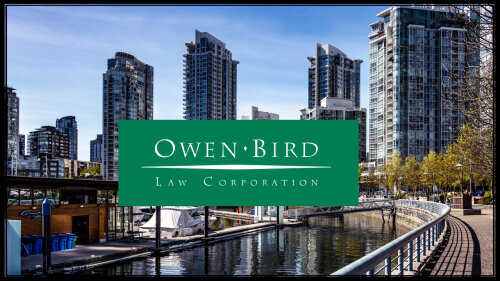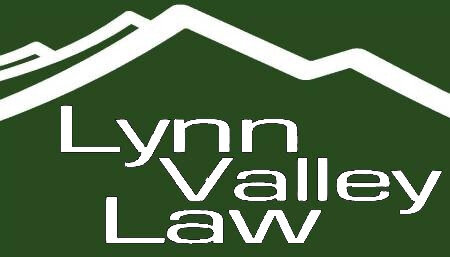Best Reinsurance Lawyers in Canada
Share your needs with us, get contacted by law firms.
Free. Takes 2 min.
Or refine your search by selecting a city:
List of the best lawyers in Canada
About Reinsurance Law in Canada
Reinsurance in Canada is a specialized field within the broader insurance industry. It involves insurance companies transferring portions of their risk portfolios to other parties to mitigate the potential for large losses. This practice supports the stability and financial health of the insurance industry by spreading risk. Reinsurance ensures that primary insurers can cover their policyholders even in the event of catastrophic losses. The Canadian reinsurance market is well-regulated and robust, requiring a thorough understanding of both national and international laws and treaties.
Why You May Need a Lawyer
Legal expertise in reinsurance is crucial for navigating complex agreements and regulatory compliance. Common situations where legal help may be required include:
- Drafting and negotiating reinsurance contracts to ensure fair terms.
- Handling disputes arising from reinsurance claims or contract terms.
- Ensuring compliance with regulations set forth by Canadian and international authorities.
- Advising on the tax implications of reinsurance arrangements.
- Guiding mergers and acquisitions involving reinsurance companies.
Local Laws Overview
Several key aspects are critical when considering reinsurance in Canada:
- The Office of the Superintendent of Financial Institutions (OSFI) oversees federally regulated insurance companies, providing guidelines that affect reinsurance practices.
- Canadian reinsurance contracts must comply with provincial regulations and common law principles regarding contract formation and enforcement.
- Reinsurance arrangements can be affected by international trade agreements and cross-border regulations, given Canada’s participation in the global market.
- New technologies and cyber risks are increasingly influencing reinsurance policies and regulatory focus.
Frequently Asked Questions
What is reinsurance?
Reinsurance is a practice where insurance companies protect themselves against significant losses by sharing risk with other insurers.
Why do insurance companies need reinsurance?
Insurance companies use reinsurance to stabilize their finances, manage risk exposure, and increase their ability to underwrite policies.
Is reinsurance mandatory in Canada?
No, reinsurance is not mandatory, but it is widely practiced to ensure financial stability and risk management.
How are reinsurance contracts regulated in Canada?
Reinsurance contracts are subject to provincial insurance law, federal oversight by OSFI, and must adhere to international agreements.
What are some common types of reinsurance agreements?
Common types include treaty and facultative reinsurance. Treaty involves broad categories of risk, while facultative applies to specific risks or assets.
How can reinsurance disputes be resolved?
Disputes can be resolved through negotiation, mediation, arbitration, or litigation, depending on contract terms and the nature of the dispute.
Are there any tax implications in reinsurance?
Yes, there are tax considerations in reinsurance transactions, including the treatment of premiums and claims, which may vary based on jurisdiction.
What role does technology play in reinsurance?
Technology plays a significant role in risk assessment, underwriting processes, and creating smart contracts to streamline reinsurance operations.
Can reinsurers operate outside of Canada?
Yes, Canadian reinsurers often engage in global markets and may operate across borders, subject to international laws and treaties.
How do I know if my reinsurance contract is compliant?
Consult a legal expert to review your contracts and ensure they adhere to applicable legal and regulatory standards in Canada and abroad.
Additional Resources
For further assistance, consider reaching out to the following:
- The Canadian Life and Health Insurance Association (CLHIA)
- The Insurance Bureau of Canada (IBC)
- The Office of the Superintendent of Financial Institutions (OSFI)
- Legal professionals specializing in insurance and reinsurance law
Next Steps
If you require legal assistance in reinsurance, consider these steps:
- Assess your specific needs related to reinsurance, such as contract drafting or dispute resolution.
- Research and consult with legal experts specializing in reinsurance law to gain clarity and direction.
- Prepare all relevant documentation and information before reaching out to a legal advisor to streamline consultation.
- Consider attending seminars or workshops on reinsurance to enhance your understanding of the field.
Lawzana helps you find the best lawyers and law firms in Canada through a curated and pre-screened list of qualified legal professionals. Our platform offers rankings and detailed profiles of attorneys and law firms, allowing you to compare based on practice areas, including Reinsurance, experience, and client feedback.
Each profile includes a description of the firm's areas of practice, client reviews, team members and partners, year of establishment, spoken languages, office locations, contact information, social media presence, and any published articles or resources. Most firms on our platform speak English and are experienced in both local and international legal matters.
Get a quote from top-rated law firms in Canada — quickly, securely, and without unnecessary hassle.
Disclaimer:
The information provided on this page is for general informational purposes only and does not constitute legal advice. While we strive to ensure the accuracy and relevance of the content, legal information may change over time, and interpretations of the law can vary. You should always consult with a qualified legal professional for advice specific to your situation.
We disclaim all liability for actions taken or not taken based on the content of this page. If you believe any information is incorrect or outdated, please contact us, and we will review and update it where appropriate.
Browse reinsurance law firms by city in Canada
Refine your search by selecting a city.














